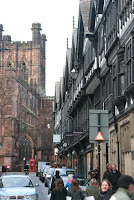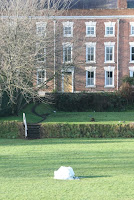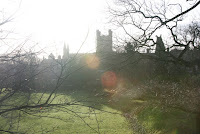
The Industrial Revolution initiated a need for cheap transport of large raw materials such as iron ore and coal. Roman networks of canals were expanded and ran from coast to inland cities, and horse-drawn barges were built to be narrow and long to travel along these inland waterways.
Eventually, the canals began to be used for pottery, lumber and textile transportation, and soon the canals were busy waterways flowing between industry, cities and coastal ports. The commercial benefits to cities and commerce was evident when the opening of the Bridgewater canal soon lowered the cost of coal in Manchester by 75%.

Inevitably, technology overtook the canal system as rail, then road, transport saw cheaper and faster methods of moving goods. Ironically, the system was replaced by a revolution that it had helped intitiate. The canal network declined in use; a victim of more efficient logistics, became clogged with weeds and silt and fell into disrepair.
A few canals were persistently kept open to transport goods, but the harsh and long winter of 1962 froze the canals for 3 months and users turned to more reliable logistical methods, never to return to the water.

But, Britain has a great interest in preservation, and groups were formed to research the history of this pivotal part of its heritage. With such extensive canal networks available, there began interest in their use for leisure activities. Blocked canals began to be reopened, and today canals are pleasant places for leisurely walks or boating trips to see life at 4 miles per hour.
Which brings me to my own story – the second running story in a week.
I have felt the need to keep exercising and last week, I was invited to go on a training run with the cross-country team. Upon leaving the School, we ran across the road and through neighbouring University of Birmingham. Across to the railway station, over the bridge, we descended the stairs to run alongside the canal. The ice, mixed with floating rubbish, of recent weeks was breaking up with this week’s (relatively) warmer temperatures of 5–7 C.
Following the parallel walking path for five minutes, I was enjoying the event and the inner warmth that builds after the initial cold shock of early stages. Taking in the novel surroundings and chatting with my running companion / teaching colleague, I spotted ahead a group of people gathered on the path. The path deviated sharply where the people stood, and I looked ahead of me to look for a path to avoid running through the group. The pathway straight ahead was dark bitumen with puddles and appeared to be an alternative route.


So, I decided to take the straighter, less crowded path across the wet bitumen. I jumped off the step and launched myself into – the icy waters of Birmingham canal!
The ice broke open on impact, and I got a great shock as I hit the cold waters. I tried to return to the bank, and was assisted out by my colleague and one of the crowd members. My hands were sore and my leg was swelling from impacting the ice. I was also acutely embarrassed by own stupidity right in front of a shocked audience! A couple came over to offer me some coffee – they were well prepared retirees on their weekly group walk. One woman suggested I try hers, since it had rum in it. Upon hearing my thanks, another asked in her strong Brummie accent, ‘You’re not from arood here, are ye, luv?’
I now know that the purpose of this deviation from the canal path is a boat turn-around point. Since the temperatures were cold, I was chilling rapidly. The best thing to do was to run back and get into a hot shower to try and reheat and recover.
I did come to England to try new experiences, and certainly this day provided a most unexpected one. I must say, I have had better days, but this was the stuff of comedy that Benny Hill fans would have loved.




















